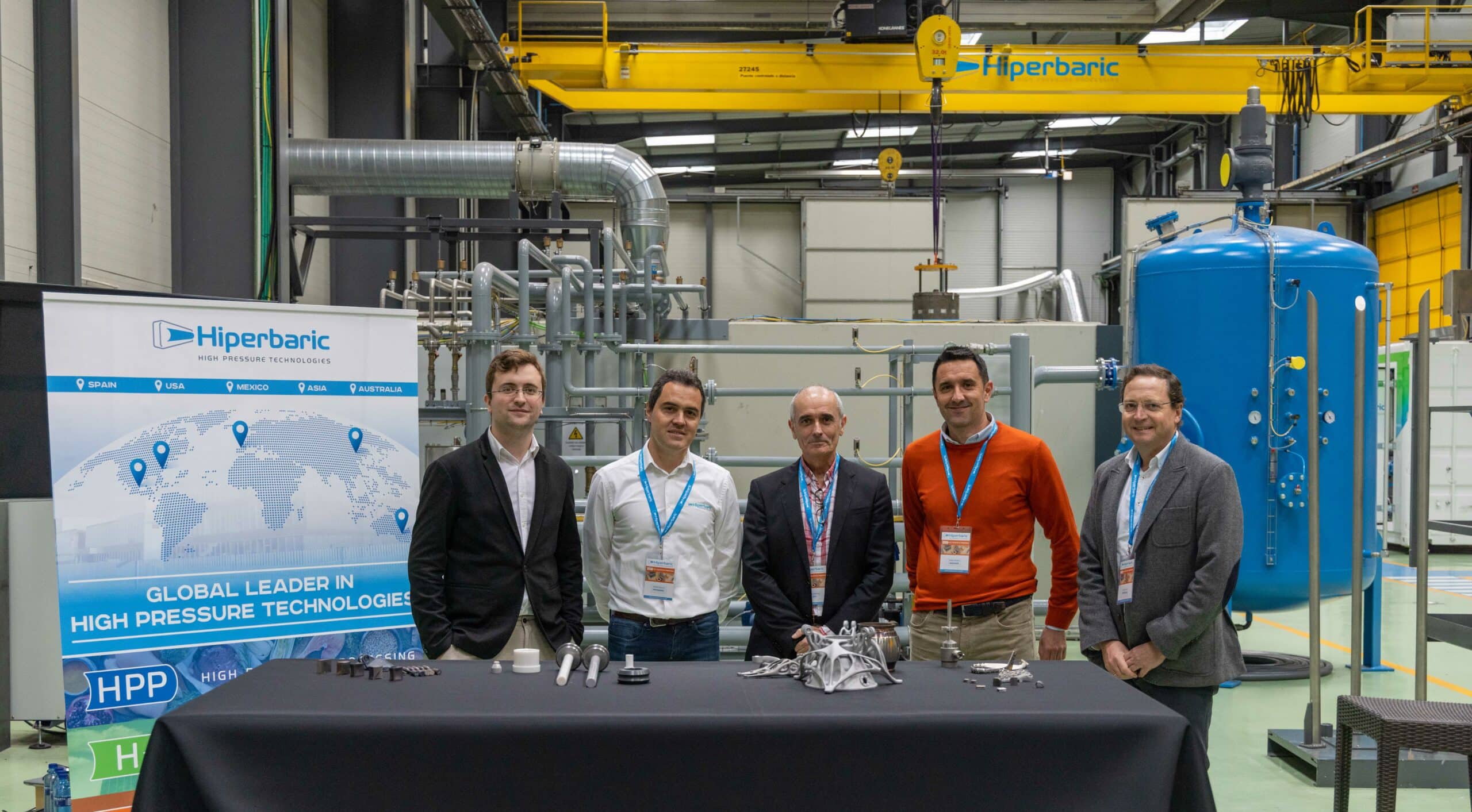Innovative Implant Materials And Technologies: Revolutionizing Dental Implants

Innovative implant materials and technologies are revolutionizing the field of dental implants. From digitally designed and milled components to computer-guided surgery and robotic arm assistance, these advancements are improving the accuracy, efficiency, and success rates of dental implant procedures.
Additionally, new materials such as titanium alloys are being used for their strength and biocompatibility, making them the top choice for designing implants. With these cutting-edge technologies and materials, dentists can provide patients with more precise and effective implant solutions, resulting in improved dental health and a better quality of life.
The Importance Of Innovative Implant Materials And Technologies
Advancements in implant materials and technologies have revolutionized the field of dentistry. The use of innovative implant materials has greatly improved the success and longevity of dental implants. Titanium alloys are the most commonly used materials for implants due to their strength and biocompatibility with the body. These materials provide excellent stability and durability, allowing for long-term implant success.
In addition to materials, there have been significant advancements in implant technologies. Computer-guided implant surgery allows for precise placement and enhanced outcomes. Digitally designed and milled implant components ensure a perfect fit and optimal functionality. Intraoral dental cameras assist in visualizing the implant site, aiding in accurate treatment planning.
While innovative implant materials and technologies have brought immense benefits to dental implant procedures, there are also challenges that need to be addressed. Current challenges include the need for improved aesthetics and natural-looking results, reducing the risk of infection, and developing materials that can promote osseointegration.

Credit: www.hiperbaric.com
Titanium And Titanium Alloys
Titanium and titanium alloys are commonly used as implant materials due to their properties and advantages. Titanium is a metallic element that is biocompatible with the body, making it an ideal choice for implantation in orthopedic surgery and dental implants. Titanium alloys, which are a combination of titanium and other elements, offer enhanced strength and durability.
One of the major advantages of titanium alloys is their corrosion resistance, which helps prevent implant failure. These alloys also have a low density, making them lightweight and comfortable for patients. Additionally, titanium alloys have good fatigue strength and can withstand the mechanical stresses that implants are subject to.
In terms of innovations, there have been several advancements in titanium implants. Computer-aided treatment planning and implant placement have revolutionized the precision and accuracy of implant surgeries. Antibacterial coatings have also been developed to reduce the risk of infection after implantation.
Ceramic Implants
Ceramic Implants:
Ceramic implants are a promising advancement in dental implant technology. Unlike traditional titanium implants, ceramic implants are made of biocompatible materials such as zirconia, which offers several advantages for patients.
- Introduction to Ceramic Implants: Ceramic implants are an alternative to traditional titanium implants and are gaining popularity due to their aesthetic appeal and biocompatibility.
- Advantages of Ceramic Implants: Ceramic implants offer natural-looking results, are less prone to plaque buildup, and have a lower chance of allergic reactions.
- Challenges of Ceramic Implants: Ceramic implants have higher costs and may be more susceptible to fracture compared to titanium implants.
- Recent Developments in Ceramic Implant Technology: Ongoing research aims to enhance the strength and durability of ceramic implants, making them a viable option for more patients.
In conclusion, ceramic implants are a promising innovation in implant materials and technologies. While they do have certain challenges, ongoing advancements in ceramic implant technology are expected to address these limitations and improve their overall performance.
Polymeric Materials
Overview of Polymeric Materials in Dental Implants
Polymer-based materials have gained significant attention in the field of dental implants due to their unique properties and advantages. Polymeric materials offer excellent biocompatibility, allowing them to integrate with the surrounding tissues without any adverse reactions. They are lightweight, making them suitable for implantation in delicate areas. Moreover, polymeric implants can be easily manipulated and customized to fit individual patient needs.
Advantages and Limitations of Polymeric Implants
Polymeric implants have several advantages, including their ability to absorb shock and distribute forces evenly, reducing the risk of implant failure. They can also be radiolucent, making them ideal for accurate imaging during postoperative evaluations. However, the main limitation of polymeric implants is their lower mechanical strength compared to metallic implants. This can restrict their use in load-bearing areas.
Recent Breakthroughs in Polymeric Implant Technology
Researchers are continually striving to enhance the properties of polymeric implants. Recent breakthroughs include the development of bioactive polymers that promote osseointegration and tissue regeneration. Moreover, advancements in nanotechnology have enabled the creation of nanocomposite materials with improved mechanical properties. These innovations are revolutionizing the field of dental implantology and opening up new possibilities for patients seeking implant treatments.
Digital Dentistry And Dental Implants
New developments in digital dentistry have revolutionized dental implant procedures. Digital impressions play a crucial role in ensuring precise implant placement. With computer-guided implant surgery, dentists can accurately plan the position and angle of the implants, resulting in better outcomes for patients.
Additionally, the use of intraoral dental cameras allows dentists to capture detailed images of the patient’s teeth and gums, aiding in diagnosis and treatment planning. Robotic arm assistance is another innovative technology that assists dentists during implant procedures, improving accuracy and efficiency.
Advancements in implant materials have also played a significant role in enhancing the success and longevity of dental implants. Titanium and titanium alloys are commonly used due to their strength and biocompatibility with the body. These materials ensure optimal integration with the surrounding bone, providing stable and long-lasting implant restorations.
In conclusion, digital dentistry and innovative implant materials and technologies have revolutionized the field of dental implants, offering patients improved outcomes and long-term success.
Antibacterial Coatings For Implants
| Importance of Antibacterial Coatings in Implants |
| Antibacterial coatings play a crucial role in enhancing the success rate of implants. These coatings help prevent bacterial colonization on the implant surface, reducing the risk of infections and implant failures. The emergence of antibiotic-resistant bacteria has made antibacterial coatings even more essential in implant materials and technologies.
Different types of antibacterial coatings are being developed and utilized in the medical field. Some common types include silver-based coatings, titanium dioxide coatings, and hydrogel coatings. Each type offers unique advantages in terms of antibacterial properties and biocompatibility. Advancements in antibacterial coating technology have allowed for the development of more effective and long-lasting coatings. Researchers are working on improving coating durability, avoiding coating delamination, and enhancing antibacterial properties. These advancements aim to provide safer and more reliable implant options for patients. In conclusion, antibacterial coatings are a critical component of implant materials and technologies. Their importance in preventing infections and improving implant success cannot be overstated. Ongoing research and advancements in coating technology continue to push the boundaries of implant innovation. |
Robotic Arm Assistance In Implant Surgery
Innovative implant materials and technologies have revolutionized the field of dental implants. One such advancement is the use of robotic arm assistance in implant surgery. This technology offers numerous benefits for both patients and dentists.
Benefits Of Robotic Arm Assistance In Implant Placement
- Precision: Robotic arms are capable of performing highly precise movements, allowing for accurate implant placement.
- Improved Outcomes: The use of robotic arms reduces the chances of human error, leading to better implant success rates.
- Reduced Patient Discomfort: Robotic arm assistance enables minimally invasive procedures, resulting in less post-operative pain and faster recovery times.
- Enhanced Visualization: Robotic arms can be equipped with cameras, providing dentists with a clear view of the surgical site.
Robotic Arm Systems Currently Used In Dental Implants
Various robotic arm systems are currently being used in dental implant surgery. These systems include computer-guided implant placement and digitally designed and milled implant components and restorations. They utilize advanced technologies to ensure precise and successful implant procedures.
Future Prospects Of Robotic Arm Assistance In Implant Surgery
The future of dental implant surgery holds even more exciting prospects for robotic arm assistance. Researchers and engineers are constantly working on improvements and innovations to enhance the capabilities of robotic arms. This includes the development of more compact and ergonomic robotic systems that can further optimize implant placement and patient outcomes.
Innovations In Implantology Research
Innovations in implantology research have led to the development of new materials and technologies that offer promising future developments in the field. Recent research has focused on innovative implant materials and technologies, aiming to improve the success and longevity of implant procedures. Titanium and titanium alloys have been widely used due to their strength and biocompatibility with the body.
Additionally, computer-aided treatment planning and digitally designed and milled implant components and restorations have revolutionized implantology. Antibacterial coatings for implants are also being developed to minimize the risk of infection. Collaboration between academia and industry is crucial for advancements in implantology, as it allows for the translation of research findings into practical applications. These ongoing efforts in research and collaboration are driving the field of implantology forward, leading to more efficient and successful implant procedures.
Frequently Asked Questions For Innovative Implant Materials And Technologies.
What Is The Newest Technology In Dental Implants?
The newest technology in dental implants includes digitally designed & milled implant components and restorations, digital impressions, computer-guided implant surgery, intraoral dental cameras, and robotic arm assistance. Titanium alloy is the most commonly used implant material due to its strength and biocompatibility with the body.
What Are The New Materials For Implants?
The new materials for implants include titanium and titanium alloys. Titanium is commonly used in orthopedic surgery implants due to its strength and biocompatibility. Titanium alloy is also a popular choice for dental implants because of its strength and compatibility with the body.
Which Is The Most Successful Biomaterial For Implants?
The most successful biomaterial for implants is titanium alloy. It is widely used due to its strength and compatibility with the human body.
Which Type Of Material Is Best Suited For Designing Implants?
Titanium alloy is the best-suited material for designing implants due to its strength and biocompatibility with the body.
Conclusion
Innovative implant materials and technologies have revolutionized the field of dental implants. From digitally designed and milled implant components to computer-guided surgery and robotic arm assistance, these advancements have greatly improved the success and efficiency of dental implant procedures. Additionally, the use of new materials, such as titanium alloys, has increased the strength and biocompatibility of implants.
With these innovative technologies and materials, patients can now benefit from faster healing times, improved aesthetics, and long-term success in their dental implant treatments. Trust in these advancements to achieve a healthy and confident smile.



2 Comments